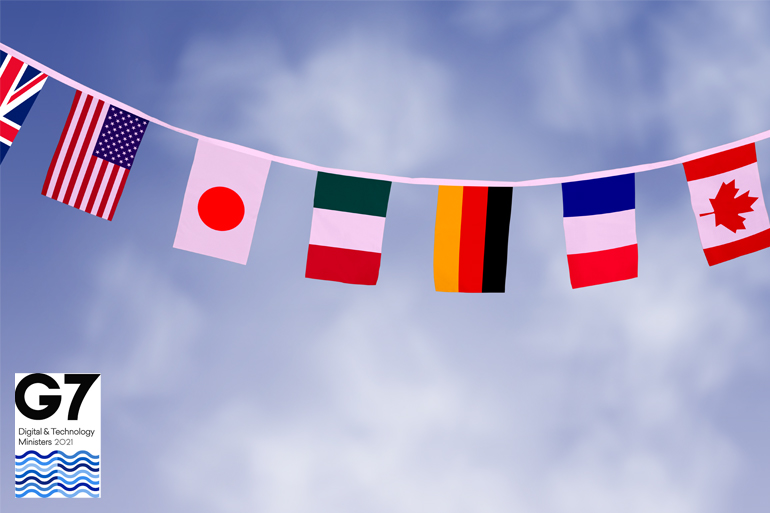The digital and technology ministers of the G7 countries have committed to adopt electronic transferable records for international trade transactions within 12-18 months. This is a huge step forward as this push by G7 countries means that we are likely to see wider adoption globally.
The historic decision was announced at the G7 meeting in May 2021. The framework agreed upon is based on the United Nations Commission on International Trade Law’s (UNCITRAL) Model Law on Electronic Transferable Records (MLETR).
G7 Ministers’ Statement
In a collective statement, the G7 ministers said, “Paper-based transactions, which still dominate international trade are a source of cost, delay, inefficiency, fraud, error and environmental impact. It is our shared view that by enabling businesses to use electronic transferable records we will generate efficiencies and economic savings. This will strengthen the resilience of our global economic system and play a crucial role in trade recovery across the G7.”
Causes for Lack of Adoption
Even today, in 2021, only about 0.1% of bills of lading are issued electronically, according to the Digital Container Shipping Association. That number is appallingly low. This is despite many efforts to push for digitization and digitalization of global trade. The main hurdle to issuing these documents digitally is that, in most countries, there are outdated laws that require that “negotiable instruments”, such as bills of lading and other “documents of title”, be presented in hard-copy paper format.
As the pandemic wreaked havoc in 2020, the International Chamber of Commerce called upon governments to allow for an “immediate transition” to electronic trade documents. However, even against the backdrop of the pandemic, only a few economies adopted UNCITRAL’s model law, giving electronic documents and signatures the same legal standing as their paper-based counterparts.
Change is Coming, Swiftly
According to the ICC’s Secretary-General, in the wake of this historic decision of the G7 countries, businesses in the UK have 12-18 months to adapt to the new electronic systems. Once the legal barriers are gone, the big players will be ready to jump on the bandwagon as it will improve productivity and ease of doing business many times over. Countries that trade with the G7 too should start making their move, as otherwise, they will lose out to those who have already adopted electronic transferable records.
Trade Finance in the Electronic Age s the world moves towards paperless trading, businesses should look to trade finance partners who are tech-savvy, experienced, reputed and operate internationally. At Euro Exim Bank, we specialize in trade finance and are pioneers in digital trade documents and payment settlement, being one of the early adopters of blockchain and providing our customers with the convenience of a digital multicurrency settlement platform in the form of Exim Wave.

